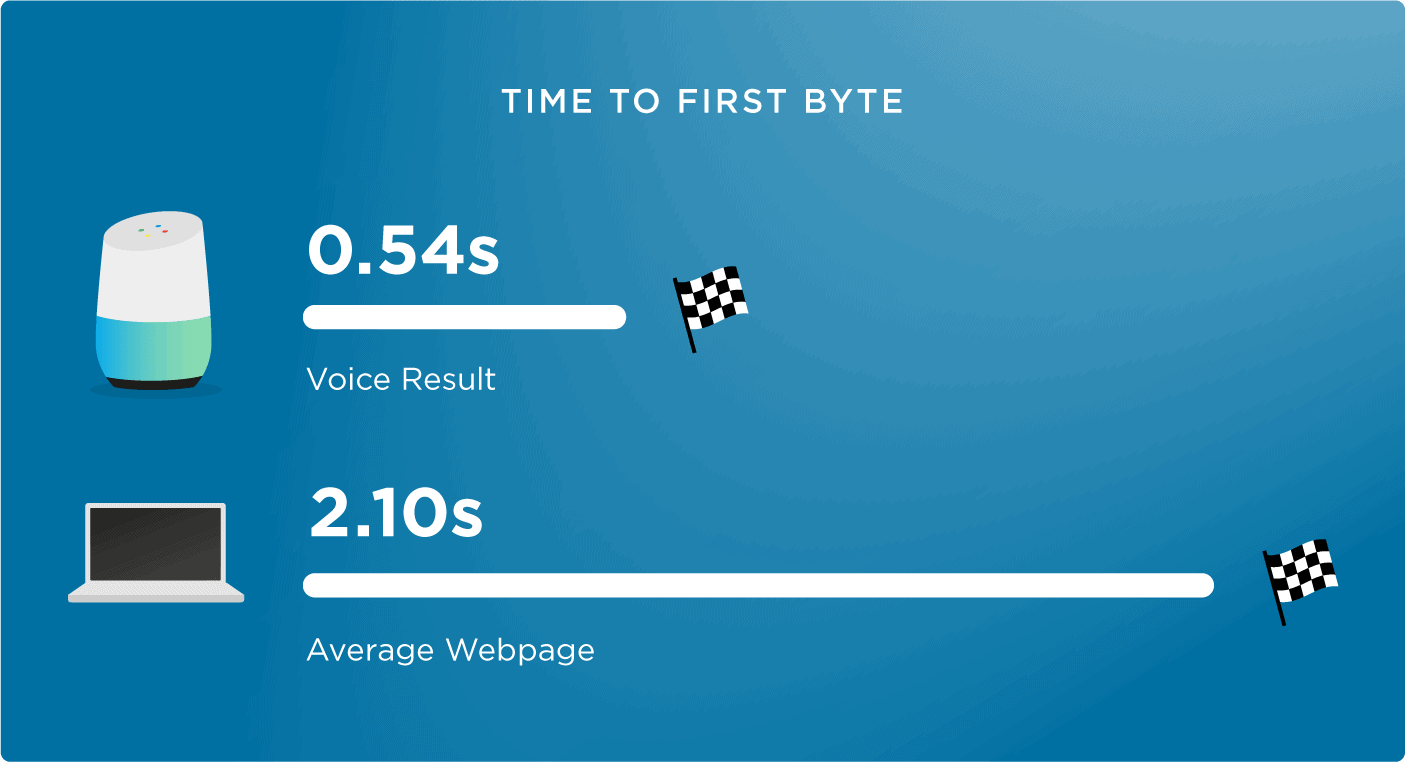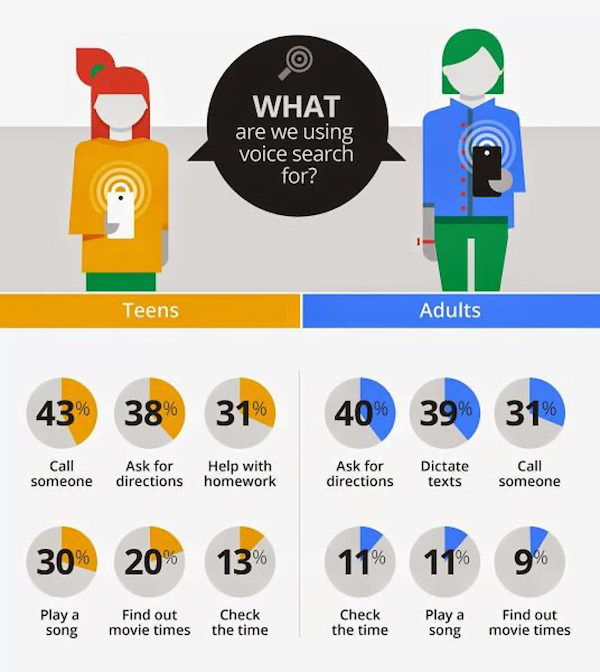In addition, Google is working on improving its search capabilities with artificial intelligence technology such as MUM, which promises to make searches more flexible.
This valuable knowledge will push you towards the best way to optimize your website.
Let’s make sure your SEO strategy matches your customers’ flexibility and Google’s ever-changing algorithm.
How To Optimize Your Site For Voice Search
Contents
- 1 How To Optimize Your Site For Voice Search
- 1.1 1. Find & Use Conversational Keywords
- 1.2 2. Build An FAQ Section
- 1.3 3. Go Multilingual
- 1.4 4. Claim Your Google My Business Profile
- 1.5 5. Go Fast, Go Mobile-Friendly
- 1.6 6. Improve Your Domain Authority
- 1.7 7. Get Featured Snippets For Your Site
- 1.8 8. Use Schema Markup
- 1.9 9. Engage With Users On Social Media
- 1.10 10. Rank Your Videos In Search Results
- 2 Wrapping Up
- 3 What type of keywords should be included for voice search?
- 4 What is Google voice assistant?
- 5 What is voice search and how does it work?
- 6 Who is the best positioned firm in the voice Wars?

Now that we know how people usually use voice search, let’s get to work.
Making your site voice search friendly can help others find you – and, more importantly, choose you.
How can your company use voice technology?
1. Find & Use Conversational Keywords
As you know, short and obscure keywords are the enemy of SEO.
In most cases, middle and long tail keywords are much better: the more specific they are, the more likely they are to attract a customer.
Voice search goes one step further: even long-tail keywords aren’t enough.
Instead, you have to use full phrases and questions that are usually used in conversations between real people.
For example: “What is the speed of a swallow without a load?”
Fortunately, keyword search tools can catch these phrases and questions well.
Look no further than WebCEO’s keyword suggestions.
Screenshot from WebCEO, April 2022
Once in the Question Research Tool, select all the conversation phrases.
Tip: They often start with the words who, what, why, where, when and how.
A good alternative to keyword searches by voice search are Google’s AutoComplete and “People Ask too” features.
To do your research to the finish line, also check out the forums and websites visited by your target audience.
Reddit is a really good example. Find a subreddit related to your niche and check thread titles – these are questions asked by your potential customers.
All that’s left to do is use them on your site.
2. Build An FAQ Section
You often hear that having a FAQ page on your website is great for your SEO, and it’s absolutely true.
Users come with questions, and you should have answers ready.
SEO experts advise creating content that meets the needs of users and it is difficult to find a better example than the FAQ.
But the important words here are “questions” and “answers” – that’s the essence of voice search!
These questions and answers are the engines of the conversational language we just talked about.
Using the research from step 1, list the questions on one of the pages of your website and then simply complete them with the answers.
Try to be detailed, but not too long; users prefer quick replies and voice search replies are also shorter.
Screenshot from Siri’s guide, April 2022.
3. Go Multilingual
Chances are you have a diverse pool of visitors who speak more than one language.
If that’s the case, you need to prepare content that they can find and use.
For voice search, the content translation quality must be very accurate.
You want to make sure that when Siri reads your content, you sound like a trusted, trustworthy source.
We recommend getting a native speaker to translate and check the text and content.
Also, be sure to read Google’s guidelines for managing multilingual websites.
4. Claim Your Google My Business Profile
Roughly half of voice search users search for local business information every day.
Since voice search is so friendly to local users, it is important that your voice results are at the top.
What’s the best way to increase your chances of playing this game?
This would be the best local SEO player: Google My Business.
Screenshot from Google My Business, April 2022
This step is an absolute must for all traditional businesses, regardless of whether they are voice search.
It’s simple and completely free.
Create your listing, fill it with all the information you can provide and wait for approval.
Congratulations! You have gained a powerful SEO asset.
You can make it even more difficult for you by following them on WebCEO.
Google Company Profile Reports track customer activity and show how users interacted with your site, starting with SERP.
Screenshot from WebCEO, April 2022
5. Go Fast, Go Mobile-Friendly
20% of all mobile queries are made using voice search.
If your site is not well optimized for mobile devices, the user journey will depart from your site and continue on another site. Don’t let that happen.
So what are the basics of mobile SEO?
Check if your website is mobile friendly using the WebCEO speed optimization tool.
This tool gives you the result and offers tips for optimizing your website for mobile devices and making it load faster.
Screenshot from WebCEO, April 2022
Now comes the part that is likely to give you the least fun.
As a rule, voice search chooses the highest search result for a spoken query.
Sometimes the assistant says, “Here are some options,” and leaves you to explore the SERP.
In other words, if you want to be heard on voice search, you have to put your website on the first page of Google. The closer to position # 1, the better.
The best solution is to double your SEO efforts on all fronts including backlinks, user experience, local search, technical issues – whatever you want.
Be sure to track your progress as you watch your rankings increase in the WebCEO Rankings report.
Screenshot from WebCEO, April 2022
You can track the position of the voice search keywords with this tool.
Don’t miss the day when a smart assistant picks up a page from your website – it will surely be an occasion worthy of celebration.
7. Get Featured Snippets For Your Site
When we said before that voice search chooses the highest search result including position 0.
Being number one in organic search results is no longer enough. You have to aim even higher.
40.7% of voice search results came from Recommended Snippets.
If you have a FAQ page, you’ve already done most of the work. Both the highlighted passages and voice search prefer short but concise answers to user questions.
This is where simple language works best: Backlinko found that Google’s average voice search result is written at ninth grade level, so stay away from academic language.
8. Use Schema Markup
According to the same study by Backlinko, the schema does not appear to have much of an impact on voice search SEO.
However, other sources recommend using a schema anyway.
This is because structured data helps search engines understand the purpose of each element on the page – and choose what is relevant to the user’s question.
Additionally, Google is busy developing a “talkative” schema service. Selects text on your page that you want the intelligent assistant to read.
We anticipate that Google wants schema to play a bigger role in voice search.
The “speakable” feature is still in beta, so keep an eye out for updates and prepare for rollout.
Oh yes, social media is also voice search friendly!
Voice search results often get tons of likes and shares from Facebook, Twitter and other social networks.
Make sure you have active pages there and show them lots of love and care.
The more you engage with your users, the more you’ll find later thanks to the virtual assistant.
10. Rank Your Videos In Search Results
An informational video can provide a much better answer to a user’s query than plain text.
If you have any videos that can help users, they can also be searched by voice.
Google may already isolate parts of the video that are relevant to user requests, but first you need to make sure your video is ranked high.
In order for your videos to rank high on Google and appear in voice search, you need:
Track the Google rankings of your videos with WebCEO’s My Rankings report, which also collects video search results.
Wrapping Up

Voice search is no longer the “near future” of SEO. It’s already here, and there’s a competition between marketers to see who can best master it.
As you can see, this comes down to three key principles:
Feel free to use everything at your disposal. Your team’s support, your smarts, your intuition and your tools to implement your plans. Go get them!
The views expressed in this article are the sponsor’s own.
What type of keywords should be included for voice search?

Instead of shortcuts, Voice Search uses five keywords and a how (who, what, where, when, why, how), other question modifiers, and long keywords that are conversational and intent-capture.
What are the 3 types of keywords? There are three types of keywords, described by their length:
- Short keywords (also known as general or general keywords)
- Keywords mid-tail.
- Long keywords.
What should be included in a keyword?
Keywords should contain words and phrases that suggest what the topic is about. Also include words and phrases that are closely related to your topic. (For example, if the article is about heart disease, use words like stroke, cardiovascular, blood, etc.
What is an example of a keyword?
Keywords are words and phrases that people type into search engines to find what they are looking for. For example, if you want to buy a new jacket, you can google something like “men’s leather jacket.” Even though this phrase consists of more than one word, it is still a keyword.
What makes a good keyword?
Your target keywords must meet four criteria – high search volume, high relevance, high conversion value, and reasonable competition.
What is Google voice assistant?

The Google Assistant is an easy way to use your phone and apps hands-free. Get the Google Assistant for hands-free help. It will help you set reminders and alarms, manage your schedule, search for answers, navigate and control smart home devices away from home * and much more.
What’s the difference between Google Voice and the Google Assistant? – Both of them are Google’s virtual voice assistants that share some basic functions in common, but the Google Assistant is a complete overhaul and an improved version of Google Now designed to be more personal.
Is Google Assistant free to use?
Is there a fee for the Google Assistant? Not. But you’ll need a compatible device.
How much does Google Assistant cost a month?
No, there is no monthly Google Home fee, absolutely no cost. Google Home is a brand owned by Google. The device has intelligent speakers; they execute simple voice commands using their voice or any other application that is compatible with it. You can access many services using Google Home.
Does it cost to use Google Assistant?
In case you’re wondering, the Google Assistant doesn’t cost you. It’s completely free, so if you see a request to pay for the Google Assistant, it’s a scam.
Is Google Assistant safe?
Your data, such as chatting with the Google Assistant, is private and secure. They are encrypted when they are transferred between your device, Google services and our data centers. Google products and services are designed to protect your information with multiple layers of security, including industry-leading encryption technology.
Is Google Assistant listening to my conversations?
During an interrogation in India, Google reportedly admitted that the Assistant was secretly eavesdropping on people. It sounds scary, but it’s probably not a big deal.
Does Google Assistant invade privacy?
“Google’s actions were a serious breach of privacy,” reads the lawsuit. “These actions constitute a gross violation of social norms that is highly offensive.” According to research company Strategy Analytics, in 2019 alone, Google sold approximately 30 million smart speakers and displays.
Does Google Assistant spy on you?
You would be forgiven for thinking your private conversations were just that, but two leading voice assistants listen to everything you say, says a new report. Patent applications from Amazon and Google have revealed how their smart speakers powered by Alexa and Voice Assistant “spy” on you.
What is voice search and how does it work?

Voice search is the act of using speech to ask questions and give commands to compatible devices, such as smartphones or smart speakers. The seeker talks to the device and the device carries out the command or answers the question.
What’s the difference between Voice Search and Google? In the case of using voice search as opposed to Google search, the main difference is the type of queries we ask. Voice searches are usually long questions, unlike traditional one or two word topic searches we ask Google.
Why do we need voice search?
You can answer questions in your blog content or in the FAQ section of your website so search engines can find your business when consumers use voice search to ask questions related to your industry. But, as always, optimize not only for search engines.
Why is voice search important for SEO?
SEO analysts, digital marketers, and business owners by voice search can help you survive the competition, meet your marketing goals, and increase your revenue. Dictates the user’s language and defines the search context. Enables long keywords that are used to find a specific answer.
Why is voice search so important?
Optimizing the voice search makes it possible to offer a tailored service for each individual user. Tools like the Google Assistant and Alexa are able to distinguish between voices, which also allows you to collect customer information that is unique to each person.
What is voice search on my phone?
Voice search is basically an approach that uses advanced technology that uses voice commands to perform searches on a web browser, phone, or any application. Basically, it contains a short key query in an open domain to retrieve any information from the internet.
What is voice search and control?
Voice search, also known as voice control, enables a user to use a voice command to search the Internet, website or application. In a broader definition, voice search includes an open domain keyword search for any information on the Internet, such as Google Voic. e Burn it. ch, Cortana, Siri, and Amazon Echo.
What is voice search used for?
Voice search is a technology that allows a user to search the Internet, website or application by voice command. As a result of advances in speech recognition, this feature appeared for the first time on smartphones, making it possible to replace the search bar.
Who is the best positioned firm in the voice Wars?
Google has proven to be the best form of position in a voice war. The Google Assistant has a different and leading position in voice warfare. Apple’s Siri ranks third and is the weakest in voice warfare.
Which company is best positioned in the voice of Wars? “It turned out that Google is the best form of positioning in a voice war. The Google Assistant has a different and leading position in voice warfare. Apple’s Siri ranks third and is the weakest in voice warfare.
Is voice assistant a winner take all market?
This led VoiceLabs’ research team to conclude: Therefore, VoiceLabs is not a winner-take-all market, but predicts that it will be a winner-take-all market in 2017. This puts pressure on hardware vendors to distribute devices quickly.
Who is best positioned in voice Wars?
When it comes to speech recognition, the Google Assistant was able to correctly understand all 100% of the questions asked (Alexa: 99.9%, Siri 99.8%). The Google Assistant was also a clear winner when it comes to answering questions. 92.9% of inquiries were answered correctly (only 83.1% for Siri and 79.8% for Alexa).
How big is the voice assistant market?
According to some estimates, 128 million people in the US use voice assistants. Voice makes up a significant proportion of online searches and more than 50 percent of local business searches.
How do voice assistants make money?
Voice interface development and consulting For most programmers and developers, building third party voice interfaces is the most cost effective model. The developer is paid by the brand or company for the Alexa Skill, Google Action, or Samsung Capsule building service.
What are the voice Wars?
“Voice Warfare” focuses on Alphabet’s strategy for the Google Assistant to enter the voice assistant space and asks how a voice assistant should fit into Alphabet’s larger portfolio of products and services.
Who is best positioned in voice Wars?
When it comes to speech recognition, the Google Assistant was able to correctly understand all 100% of the questions asked (Alexa: 99.9%, Siri 99.8%). The Google Assistant was also a clear winner when it comes to answering questions. 92.9% of inquiries were answered correctly (only 83.1% for Siri and 79.8% for Alexa).
What should be Google’s strategy in voice?
Ask and Answer Relevant Questions Google Highlighted Snippets usually display the best answers to popular questions, according to marketing guru Neil Patel. Also, the results from Google Answer Boxes are usually what the Google Assistant and Apple Siri use to answer voice queries.
What is Google’s strategy in voice?
Ask and Answer Relevant Questions Google Highlighted Snippets usually display the best answers to popular questions, according to marketing guru Neil Patel. Also, the results from Google Answer Boxes are usually what the Google Assistant and Apple Siri use to answer voice queries.
Why is Google’s voice a girl?
because google wanted to launch its new voice assistant with both male and female voices. Unfortunately, the systems used by Google to create its new “assistant” were only trained using female data, which meant they were better at dealing with female voices.
How does Google learn your voice?
To train your Google Assistant to know your voice using your Google Home device, start by opening the Google Home app on your iOS or Android smartphone. Then tap the Account icon in the lower right corner of the screen, then Settings, then Assistant. Next, you will click Voice Match and then Teach your voice assistant.
How does Google make money from Google Voice?
Google Voice is a free service that helps you manage your phones and voicemail by linking all your phones to one number. We only generate income from international calls. We also charge a one-time fee of $ 10 for porting a number.



